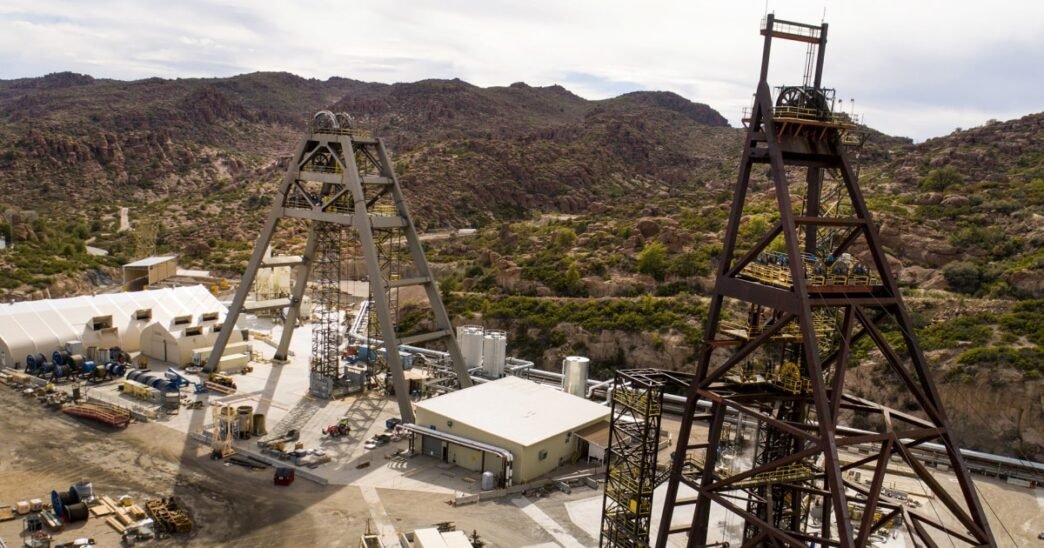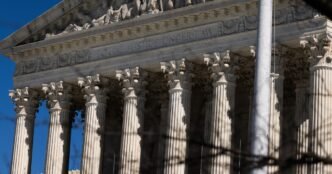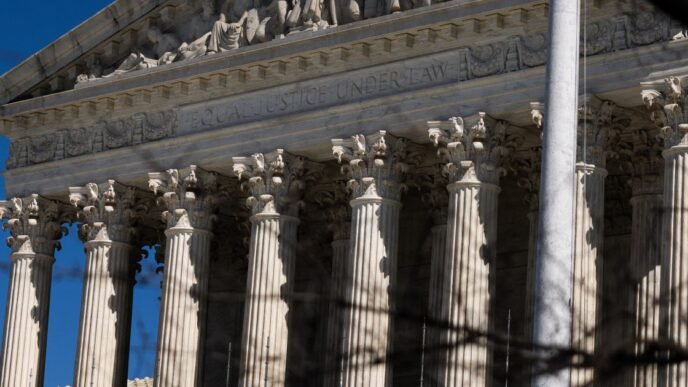WASHINGTON — The Supreme Court on Tuesday declined to consider whether Native Americans can challenge a massive copper mining project in Arizona that would destroy a sacred site used for tribal ceremonies, a weighty dispute that pitted religious rights against business interests.
The court rejected an appeal brought by the nonprofit group Apache Stronghold asserting that its members’ religious rights will be violated if the Resolution Copper mine goes forward because it would obliterate Oak Flat, the site in question.
The Trump administration recently announced its backing of the project.
The court order noted that conservative Justice Samuel Alito did not participate. It did not say why.
Conservative justices Neil Gorsuch and Clarence Thomas said they would have taken up the case.
Gorsuch, known for his backing of Native Americans in other cases, said in a dissenting opinion it was a “grievous mistake” not to hear the challenge.
The focus of attention is a law passed by Congress in 2014, which transferred the land from federal ownership to Resolution Copper, a joint venture of mining companies Rio Tinto and BHP.
Resolution Copper says the mine could supply around 25 percent of the nation’s copper, with the metal in high demand for renewable energy projects and electric vehicles.
Apache Stronghold said tribal members’ religious rights were violated both under the Constitution’s First Amendment and a federal law called the Religious Freedom Restoration Act.
Oak Flat has been used for years by Western Apaches, a group of Native Americans that includes various tribes including the San Carlos Apache Tribe, which is based on a nearby reservation. Oak Flat is within the Tonto National Forest, about 70 miles east of Phoenix.
“Oak Flat lies within the tribe’s ancestral territory and is central to traditional Apache religion as the home of Apache deities and the only place where Apaches can practice unique ceremonies,” lawyers for the San Carlos Apache Tribe wrote in court papers backing the appeal.
According to Apache Stronghold, the site is the dwelling place of spiritual beings called the Ga’an and acts as “a direct corridor to the Creator.” The site is used for sweat lodge ceremonies to mark boys reaching manhood and the multi-day “Sunrise Ceremony” that celebrates girls reaching womanhood.
An environmental study found that if the mine is built, locations used for various ceremonies would be destroyed, with the land subsiding to create a giant crater almost two miles wide.
The case reached the Supreme Court after the San Francisco-based 9th U.S. Circuit Court of Appeals narrowly ruled against Apache Stronghold earlier this year, concluding that the land transfer did not “substantially burden” the ability of tribe members to exercise their religious rights. A district court judge had earlier reached the same conclusion.
Key factors in the case are that the land at issue was owned by the federal government, not any of the tribes, and was transferred by an act of Congress.
The United States originally took control of the land in the mid 19th century. It signed an 1852 treaty with Apache chiefs that pledged to protect tribal interests, but as with other treaties with tribes, the government failed to live up to its obligations.
Apache Stronghold’s lawsuit also contained a claim under the 1852 treaty, but that issue is not before the Supreme Court.
The court’s 6-3 conservative majority regularly backs religious rights in cases that often involve claims brought by Christians.
The Apache case was different in part because it involved Native Americans and had the attention of powerful interests eager to make the mining project happen.
In court papers filed before President Donald Trump took office, former Solicitor General Elizabeth Prelogar urged the court not to hear the case, saying that while the government respects the tribe’s religious beliefs “Congress has specifically mandated that Oak Flat be transferred so that the area can be used for mining.”
Furthermore, she added, there is no precedent for concluding that the government can violate religious rights by making decisions about its own land.
But Apache Stronghold had some strong support of its own, including legal groups that have previously prevailed at the Supreme Court when representing conservative Christians, such as religious rights group Becket. Various religious groups, including the Presbyterian Church and the Episcopalian Church filed briefs urging the Supreme Court to take the case.













